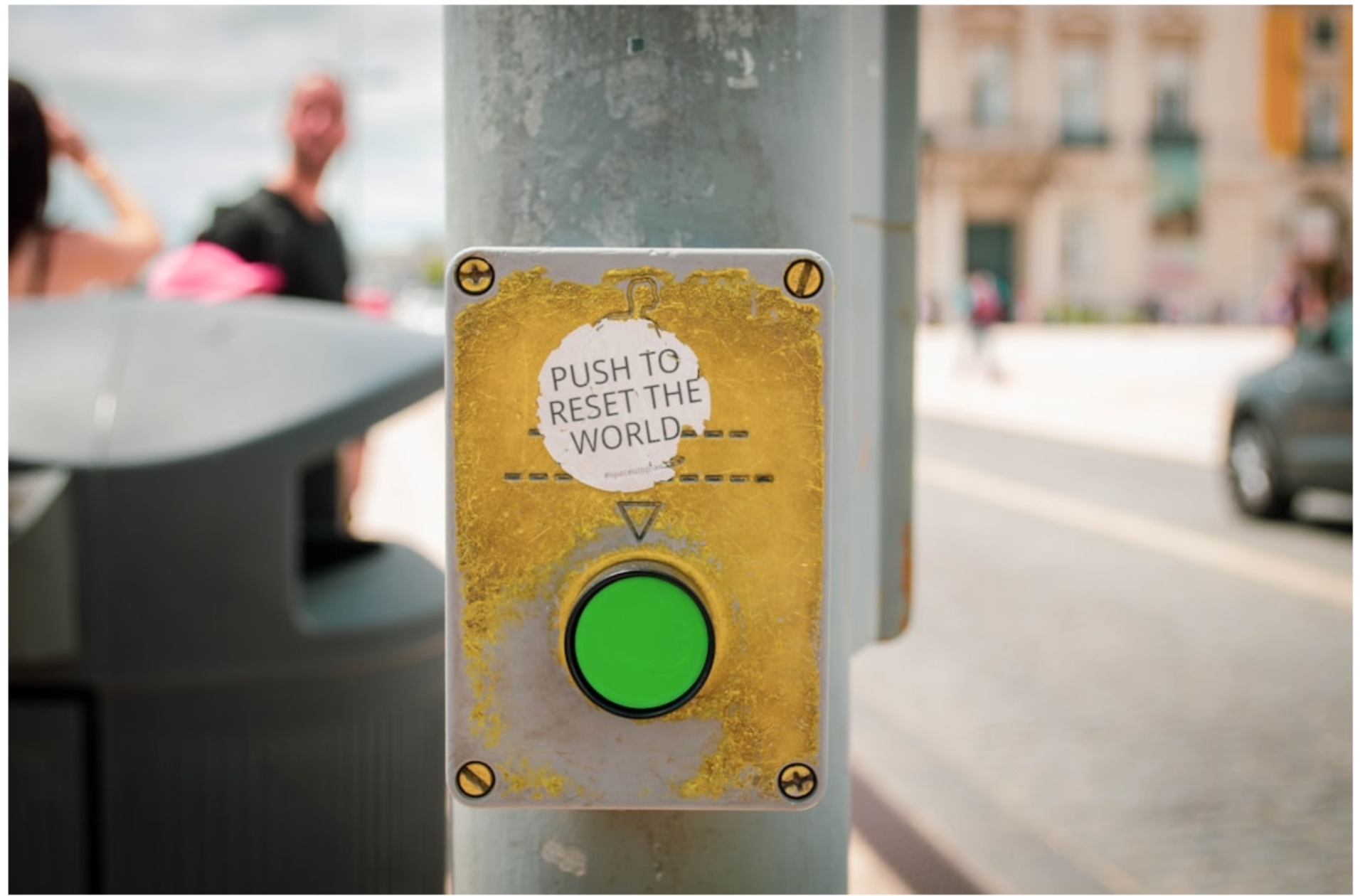Agencies on Upwork
Sharing 8-years'
Etcetera experience
Unfortunately, Upwork has a lot of information on how to open an agency but very little about how it actually functions. We decided to share our understanding and experience in a series of articles on this topic.
So, let's talk today about the advantages of opening agencies on Upwork and when they should be opened.
Advantages of agencies on Upwork

From the beginning, Upwork was oDesk, a platform for single professionals looking for their small client(s). And even now, it seems that most freelancers see it that way. Even when oDesk merged with eLance, which had more convenient functionality for business-to-business work, it looked like nothing had changed significantly because Upwork was built primarily on the functionality of oDesk. But a lot has changed since then, and most importantly, Upwork's strategy has changed a lot. There appeared the functionality on Upwork, which allows a group of people to work with clients/companies that are bigger than a single entrepreneur. However, the logic of how this happens on Upwork is a bit unusual.
The client cannot open a contract with the agency directly but only with a specific member of the agency. This is very important to understand from the beginning because everything else arises from this understanding.
First, let's outline why Agencies exist on Upwork at all. Here's how we see it:
Upwork needs agencies to work with bigger businesses for more profit

Some time ago, Upwork started an advertising campaign aimed at attracting larger companies and large businesses because they can consistently bring in a lot of money. There are now Various Talent Specialists, Enterprise and other programs that help larger companies work with the platform and available resources. But these larger companies expect better service, communication, and responsibility. They are generally used to working with teams (subcontractors) rather than assembling new teams and being deeply involved in their management.
Since 2017, Upwork has made great efforts to engage external teams to the platform and to allow freelancers with successful experience of work with medium and large businesses to build their own teams on Upwork. Since then, the main focus of Upwork has changed a little. But it still loves agencies and always tries to tell clients that working with a team is better: at least verbally and in advertising, it promotes agencies as reliable partners for client companies that come to the platform.
Ability to show the client all available expertise

Upwork recommends to register a separate profile for each person in your team who will perform work for the client, although it does not directly monitor this. Why? You should understand that the opportunity to show your specialists, your team, is most beneficial to YOU. This is the only way for you to communicate to the client how cool you are even before the actual communication starts.
In addition, there is a rather important reputation component on Upwork. If you look at articles about the risks of cooperation with agencies, one of the most widespread problems is the so-called shadow workers. That is, the client does not know who is actually doing the work, which can cause concern. But if all team members have their own profiles, the client can see them and feel at ease. Of course, if the profiles are well-groomed and informative 🙂
Bigger clients = Bigger projects = More money

Let's imagine that some medium-sized business needs to solve an issue directly unrelated to its expertise, which may require not one specialist but, for example, 4 or 5. Of course, they can put in an effort to find and hire in-house professionals, a manager for them and integrate everything into the existing company structure.
Doing all these takes time and not only! And the more specialists are needed to solve a problem, the more time it takes and quite a lot of effort and expenses. Let's assume that even a medium-sized company understands that searching for and training personnel, doing people management, and setting up processes is expensive. Often, the specialists needed in a particular country who can be found quickly are more expensive. Therefore, such a company goes to Upwork to reduce costs, save effort and skip the stage of building an in-house team. A company is WILLING to pay a little more than an individual freelancer if you, as an agency, do people management for them and deliver the results they need.
The company is looking for a subcontractor partner with the required expertise and at a lower cost to do everything in-house. Such a partner will ideally work with them as long as there is a need for such services. And again, the company dreams that when new needs and tasks arise, the subcontractor-partner will be able to satisfy them (even if it will mean finding and training a new person).
As a result, such an agreement to pay more for management and work as long as possible leads to "more money". Of course, the projects will also be bigger than just one person can do 🙂
Please note that all this time, I am not talking about the quality and speed of work, which are really not critically important (remember that the client may not understand this niche, so they cannot always estimate which numbers are average on the market). What I'm talking about are those business problems that they solve by cooperating with the agency. Of course, this is obvious to some, but for freelancers without a conscious business background, some of this can be very interesting.
Opening an agency

From the above, we can conclude whether opening an agency is necessary/possible. You should open an agency when you understand how to provide the necessary service to the client and are able to do it. You need to understand how important the service is and how to achieve it. When I talk about service, I'm not talking about the design or development abilities but about the ability to form and manage a team, configure processes and build the necessary communication with the customer, bear responsibility and deliver the desired result.
Without this understanding and using your advantages, you will compete with individual freelancers and lose to them. Because with the same approach and result, you as an agency offer your services at a higher price (or at least the client may think so).
If you're a freelancer who's never managed a team before, but you've got too much work so you're thinking about opening an agency, it's better just to raise your hourly rate. You will have money, but you'll save your nerves.
If you are a company that has decided to have another sales channel but are not ready to invest in it enough to solve the client's needs, it is better to postpone going to Upwork for later. Here, the reputation system works irreversibly: one or two negative reviews at the beginning will lead to all new clients ignoring you.
So, what does it really like to open an agency on Upwork? This is the ability to combine and manage multiple profiles and their functionalities on Upwork. It is also centralized control of finances in terms of individual profiles and contracts. This is a legal alternative to doing the same thing through an individual freelancer profile. Such a practice exists probably due to a lack of understanding of what an "agency" is and what opportunities it provides. So I suggest we find out what opportunities are available in the agency on Upwork and its advantages.
Many profiles - many niches - many invites

The problem with attracting a client through just one profile (as many small startup teams do) is that it's very difficult to niche. Currently, one profile has the opportunity to be "present" in only 3 niches (one main and two additional so-called "specialized profiles"). Perhaps this will be enough for a small team of the same kind of specialists.
A little more about the importance of filling the profile correctly: it looks strange if one profile has different specialties. For example, the main profile says PHP developer, and in the specialized profile, it says Web Designer. Then either you "can do everything, but nothing well," or you are hiding that you are working not alone but with a whole team. So, it turns out that the communication starts with fraud, and who knows if it gets better further down the road. Try putting yourself in the client's shoes.
If you've created profiles for all team members, each profile can be tailored to a specific niche so that Upwork understands that THIS team member is an expert in THIS niche. So your job application will be higher in Upwork's recommended list, and the client will be able to read your offer.
It is crucial to outline your expertise as clearly as possible. Then the client will find you through a search, or Upwork scripts will recommend you. All team profiles become a kind of "lead magnets". So, each "well-groomed" profile of the agency already brings "warm leads", which with a reasonably high probability, will be converted into active clients.
The next point is not really an advantage, but it is very important in our context.
All team members have the same JSS, badges and %

Every agency member (even those who were included just a week before) has the same JSS, badges, and Upwork commission percentages (there are a few technicalities, but we won't get into them right now) that the agency has as a whole.
JSS is a cumulative performance indicator of all contracts in the agency.
The kinds of Badges are Rising Talent, Top Rated, Top Rated Plus and Expert-Vetted. They show the degree of success and longevity of completed contracts and, to some extent, Upwork's degree of trust. New clients pay attention to them, and Upwork itself looks at these things when building recommendations.
The commissions that Upwork takes from each transaction gradually decrease from 20% to 5%, depending on the amount of money paid by the client to the agency. Commissions are calculated taking into account all transactions, regardless of which contract or (and) with which team member they took place.
All this is veeery useful and convenient.
Ability to work under the most secure payment model

The most protected and transparent model of payments with the client on Upwork is Time & Material, i.e. hourly payment. Since the beginning of Upwork, hourly was probably the main payment model. So if freelancers follow all of Upwork's guidelines, it's highly unlikely that they won't get paid for their work. There is an Upwork Hourly contract protection policy, where it specifies that even if the client cannot make the payment, Upwork will do it for him. This applies to agencies as well, and even more so than freelancers in some ways. Remember that "more money" means more risks if the agency does not receive it.
I'm not saying that the Fix Price payment model is worse. It has its advantages, but from a security point of view, hourly contracts using Upwork tracker win. With a new unknown client, it is easier to work with this model. Then there is an opportunity to change the model if you want - clients always agree to work at Fix Price, or as you see fit.
In addition, there is the reputational value of hourly paid work. Upwork believes that a freelancer with 1k+ hours of work is already trustworthy and draws the client's attention to this.
The ability to delegate responsibilities and change the capabilities of each member of the agency

It is very difficult for one person to simultaneously communicate with all clients, search for jobs and write applications. That's why it is simply unnecessary to divide responsibilities. It seems easy to give your password-login, for example, to leadgen and let him write by himself... However, you must remember that Upwork considers each account personal and providing account data to another person is considered a violation of the rules. Upwork bans such accounts even without warning.
To delegate this type of work, the agency has the ability to configure rights and access for each team member. You can limit the rights of team members to a minimum, leaving only the ability to use the time tracker and be present only in the chat of the open contract. Or provide maximum rights and make a team member almost equal in opportunities with the founder of the agency. You can set up the ability to submit applications (from yourself or any other team member) and start contracts, view financial statistics in detail, join chats and much more. This provides an opportunity to adjust the permissions of a team member on Upwork to their responsibilities in the team depending on your business model without violating the Upwork Terms of Service that are the basis of your cooperation with the platform.
When should you register an agency on Upwork?

Considering the fact that reputation is very important on Upwork - create an agency once you've started building a team. Let the reputation grow. With a proper understanding of the opportunities that Upwork provides and effective use of them, the process of building a team will be better and faster.
But how to understand those opportunities available?
This is only the first article on this topic. We plan to make the most comprehensive and detailed description of the functionality that Upwork provides based on our experience with the information you will not even find on the platform itself. Stay tuned for the next posts on the topic.
More Articles

Keeping the Human Mind Sharp When AI Can Do It All
16-10-2025
AI makes work easier, but thinking harder. Learn how to stay creative, critical, and human in the age of intelligent machines.

AI Workslop: Why Businesses Pay Freelancers to Fix AI
07-10-2025
AI speeds up work but often creates “workslop” - results that look complete yet lack value. Freelancers are the ones turning them into quality.

Disney Creative Strategy: How Ideas Become Reality
03-10-2025
Disney Creative Strategy: dream, plan, critique — a tool to guide ideas from imagination to real-world results.

Upwork Boost: Increasing Freelancer Profile Visibility
29-09-2025
Discover how Upwork’s Available Now badge and Profile Boost work, their costs, pros and cons, and which boost is best for freelancers or agencies.

10 Posts to Help You Get Started on Upwork
29-09-2025
We’ve gathered a set of articles to guide you through the essentials — from setting up your profile to building long-term client relationships.

Etcetera summer 2025 report
26-09-2025
Etcetera summer 2025 results: quiet season, new team members, shifting Upwork rules, and plans for an active autumn.

Upwork Feedback: a trust tool you should learn to read and write
22-09-2025
Upwork feedback is more than stars — it builds trust, shapes reputation, and guides choices. Learn how to read, request, and write reviews effectively

7 Hats: a thinking tool that saves time and nerves
08-09-2025
Instead of mixing emotions, facts, and criticism in chaos — this method by Edward de Bono helps separate thinking modes.

Upwork: From Simple Fees to Pay-to-Play
29-08-2025
Discover how Upwork’s fees evolved from flat 10% to a pay-to-play model with Connects, boosts, and variable 0-15% commissions in 2025.

Upwork Reset 2025: How to Refresh Your Freelance Strategy
25-08-2025
Discover 5 practical steps to reset your Upwork strategy in 2025: update skills, rethink pricing, optimize proposals, and grow with the market.

How to Build a Team That Won’t Fall Apart in a Crisis
22-08-2025
How to build a strong team that survives crises: Denys Safonov shares lessons from 11 years of leading the agency Etcetera through global challenges.

Upwork Q2 2025: What Changed and What It Means for Freelancers
15-08-2025
Upwork Q2 2025 results: fewer clients, bigger budgets, AI at the core, rising paid services, and strategic acquisitions shaping the platform’s future.

